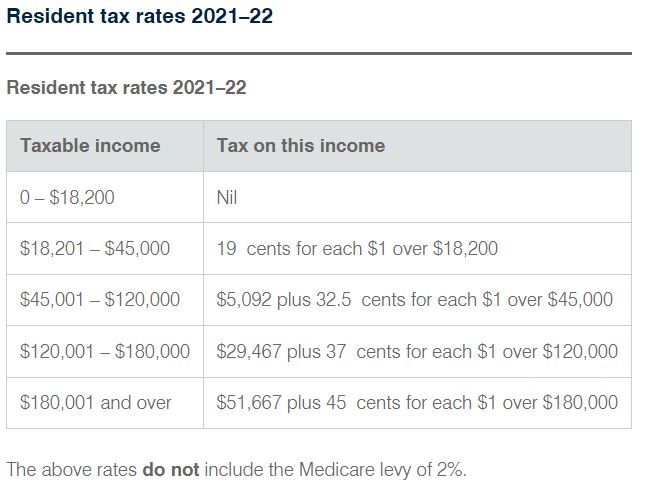Discovering the Advantages of Declaring a Tax Return: Maximize Your Tax Reimbursement This Year
Submitting a Tax return is frequently viewed as a challenging task, yet it plays an essential duty in improving your financial standing. By systematically reporting revenue and leveraging offered deductions and credit reports, individuals can tap into the capacity for substantial tax obligation refunds. Adhering to tax laws minimizes the threat of charges. Comprehending the subtleties of this procedure can expose overlooked chances for financial savings. As we explore the different aspects of tax obligation declaring, it ends up being apparent that the benefits prolong beyond mere conformity-- what techniques can you adopt to guarantee you are not leaving cash on the table?
Value of Filing a Tax Return
Submitting a Tax return is a considerable duty for businesses and individuals alike, as it serves both compliance and financial administration objectives. Abiding by tax laws is vital, as stopping working to submit can cause substantial fines, rate of interest charges, and prospective legal effects. By sending an income tax return, individuals and organizations demonstrate their commitment to satisfying their public responsibilities and contribute to the functioning of public services.
Moreover, filing an income tax return provides a chance for taxpayers to evaluate their economic scenario. It allows them to track revenue, expenses, and general economic health, which can educate future budgeting and financial investment decisions. For lots of, income tax return are an entrance to prospective refunds, as overpayment of tax obligations throughout the year can be recovered, using a much-needed monetary increase.
In addition, the income tax return process can help with access to various monetary product or services. Lenders commonly need tax returns when figuring out credit reliability for mortgages or financings, making it important for individuals and companies seeking financial aid. To conclude, submitting a Tax return is not merely a governing obligation; it is a considerable action in keeping financial honesty and exposing possible benefits.
Comprehending Tax Reductions
Tax deductions are frequently neglected yet play an essential role in lowering gross income and taking full advantage of prospective refunds. Recognizing the various kinds of tax obligation reductions offered can significantly affect your general tax obligation liability. Deductions can be classified into two primary types: common reductions and itemized deductions.
The requirement deduction is a fixed dollar quantity that taxpayers can subtract from their earnings, differing based on declaring standing. For many people, particularly those without substantial itemizable costs, taking the typical deduction is beneficial. On the other hand, itemized reductions permit taxpayers to checklist eligible expenditures, such as home mortgage passion, medical expenditures, and charitable contributions, potentially producing a greater reduction than the common choice.
It's crucial to maintain thorough records of all insurance deductible expenses throughout the year to guarantee you capture every qualified reduction. Furthermore, specific reductions may go through limitations or phase-outs based upon revenue degrees. Familiarizing yourself with these subtleties can assist you purposefully intend your finances and optimize your income tax return. By leveraging and comprehending tax obligation deductions successfully, taxpayers can decrease their taxable earnings and boost their overall tax obligation refund.

Checking Out Tax Credit Scores
Maximizing your tax obligation financial savings involves recognizing the different types of tax obligation credits available to you. Tax credit scores directly lower your tax obligation liability buck for dollar, making them extra useful than reductions, which only reduced your taxed income.
There are two main classifications of tax credits: refundable and nonrefundable. If the credit report exceeds your tax owed, nonrefundable debts can decrease your tax liability to no however will not result in a refund. Refundable credit histories, on the various other hand, can produce a reimbursement even if you have no tax obligation liability, making them particularly useful for lower-income taxpayers.
Common tax obligation credits consist of the Earned Revenue Tax Obligation Credit Rating (EITC), which sustains reduced to moderate-income working family members and individuals, and the Youngster Tax Debt, which provides financial alleviation for taxpayers with reliant children. Education-related debts, such as the American Chance Credit Report and the Life Time Learning Credit, aid counter the expenses of college.
Common Blunders to Stay Clear Of
Maneuvering the intricacies of income tax return can lead to several common risks that taxpayers ought to know. One considerable mistake is failing to report look at more info all incomes. Also percentages from sideline or freelance work must be included, as the IRS obtains copies of all earnings declarations.
Another frequent error includes ignoring deductions or debts for which one is qualified. Taxpayers must thoroughly investigate potential reductions, such as for student finances or clinical costs, to avoid leaving money on the table.
Additionally, mistakes in personal details, such as Social Safety and security numbers or declaring standing, can postpone handling and reimbursements. It is vital to ascertain all information prior to submission to guarantee accuracy.
Filing tax prep companies late or ignoring to submit completely can likewise cause penalties and missed out on opportunities for reimbursements. Taxpayers should recognize due dates and plan accordingly.
Lastly, numerous people forget to keep thorough documents of costs and sustaining records. Organized documents is essential for substantiating insurance claims and facilitating any type of future audits. By staying clear of these common blunders, taxpayers can simplify their declaring procedure and improve their possible reimbursements.
Tips for Maximizing Your Refund

Next, think about adding to retired life accounts, such as an individual retirement account. Contributions made before the tax obligation target date can be subtracted, potentially boosting your refund. Additionally, if you are independent, make sure to represent business-related expenditures that can decrease your taxable earnings.
One more crucial approach is to submit your return digitally. E-filing not just accelerates the processing time yet additionally minimizes mistakes that can accompany paper entries. Verify that you pick the proper declaring standing; this can greatly impact your tax obligation price and qualification for specific credits.
Finally, keep thorough records throughout the year. Organizing invoices and monetary records can simplify check my source the filing procedure and assist you recognize possible deductions that you might or else miss out on. By taking these steps, you position yourself to get the optimum refund feasible.
Verdict

By systematically reporting income and leveraging available deductions and credit scores, people can tap into the capacity for considerable tax obligation reimbursements. For several, tax obligation returns are an entrance to potential reimbursements, as overpayment of taxes throughout the year can be recovered, supplying a much-needed economic increase.
Recognizing the various kinds of tax reductions available can substantially impact your general tax liability. Online tax return Australia. By leveraging and comprehending tax obligation reductions efficiently, taxpayers can minimize their taxed income and improve their overall tax refund
